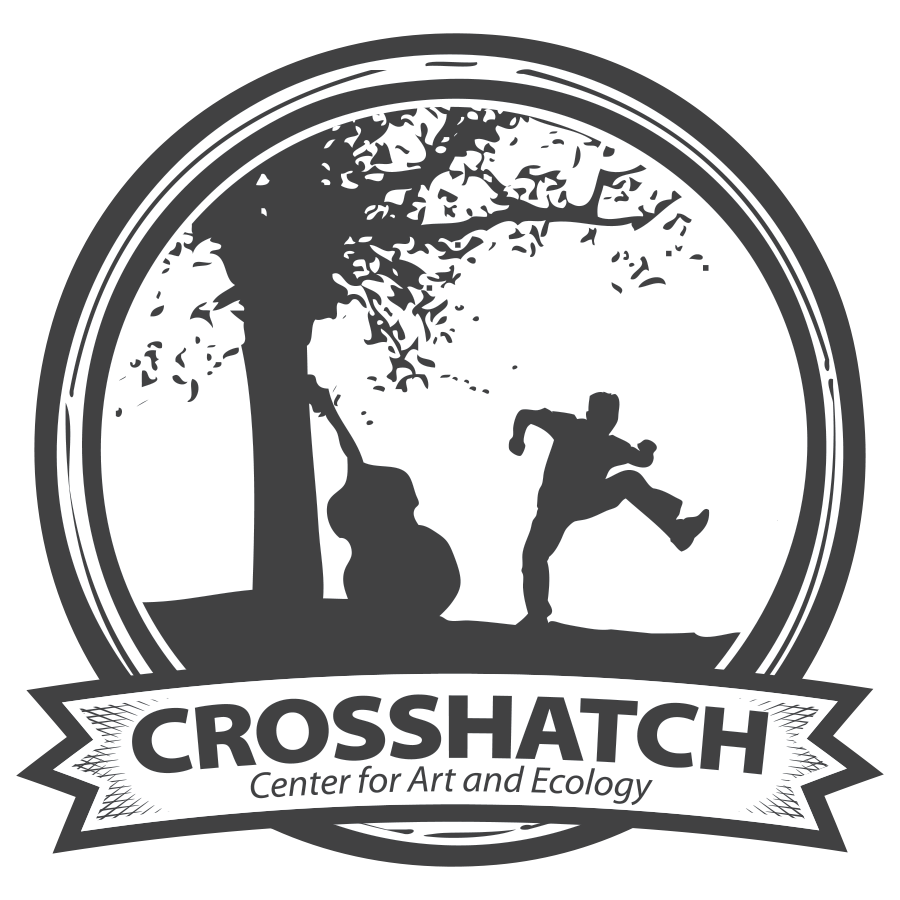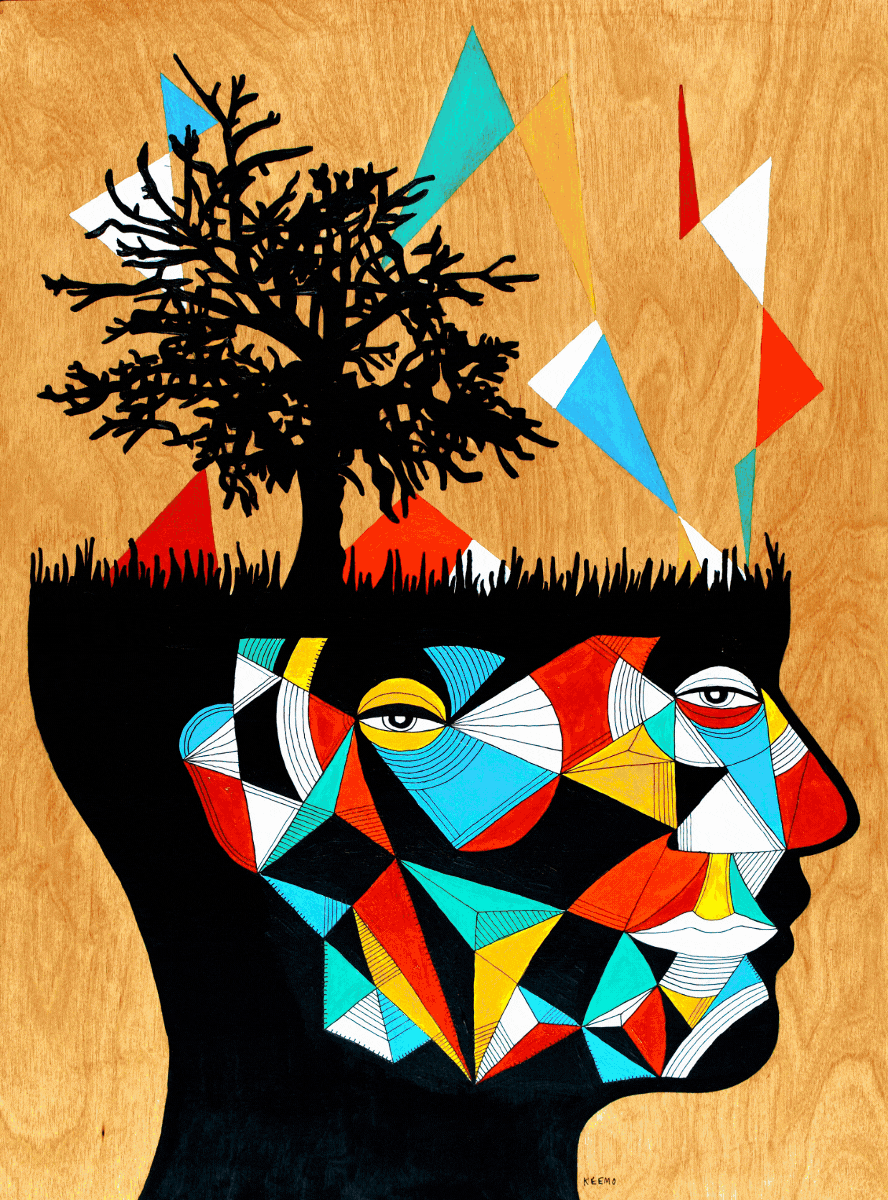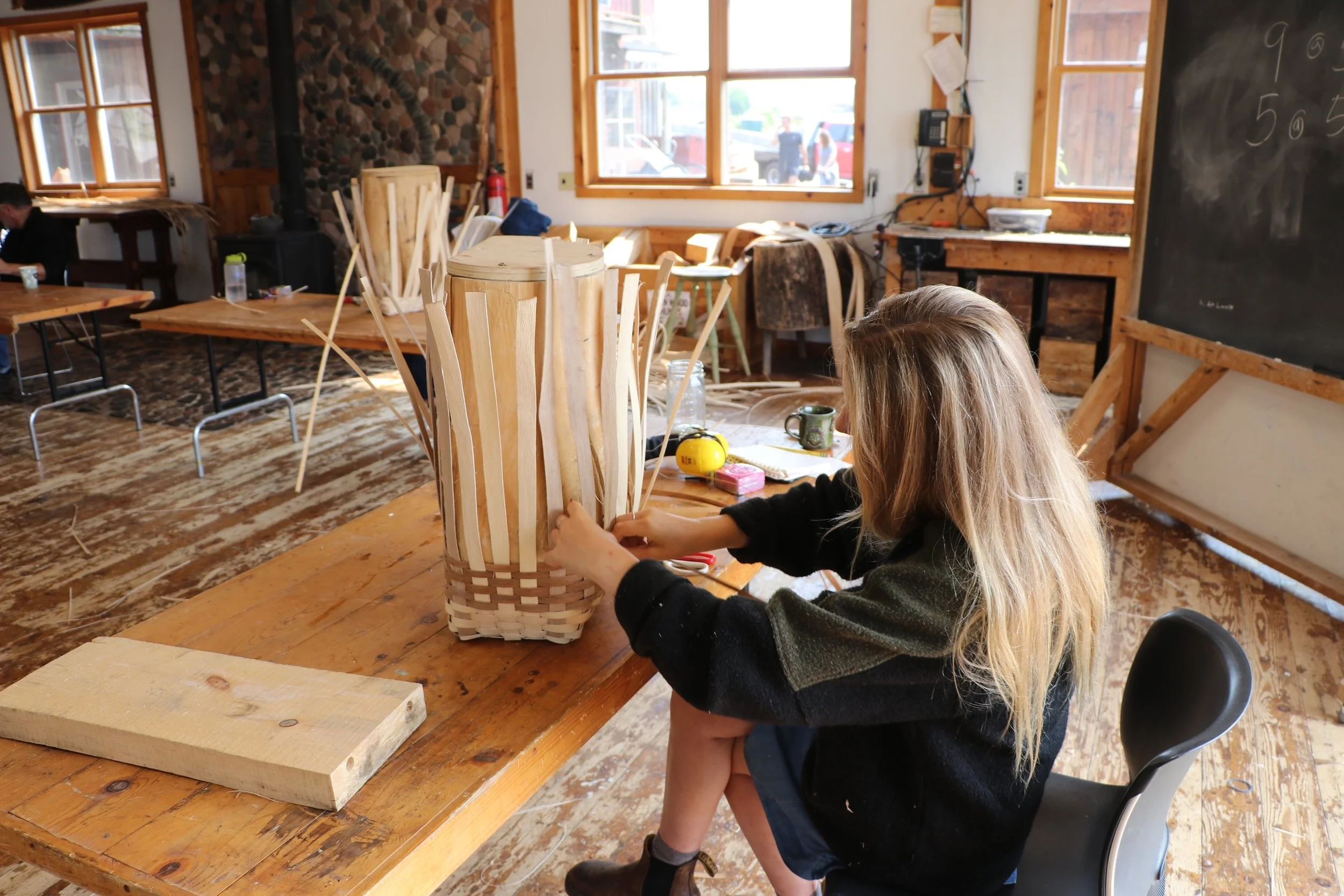Volume 4 • No. 5 • Full Moon •March 14, 2025
an excerpt from
Folk Schools: Reviving and Reimagining Folk Traditions
by Lauren Dahl
The word “folk” tends to bring to mind the quaint traditions of our grandparents. It draws up imagery of folk tales, dusty and dated; back when people took the time to churn the butter, to gather around the fire and tell a story. And while folk traditions do include crafts of quilting, sewing, and bread-baking, our classification of these things as “old-timey” or “outdated” is problematic. The idea that craft is becoming obsolete perpetuates attitudes and behaviors that are harmful to people and our environment, something that modern folk schools like Green Door Folk School aim to address.
We live in a world of high speed and immediacy. On a typical day, we might know the weather forecast without even poking our noses out the door. We can drive to the store and select nearly any type of food, any time of year, all wrapped up in plastic. One online purchase, and our worn out shoes can be replaced. We may live our whole lives never learning to sew a button back onto a coat, and might even throw the coat away because of it. In today’s world, it is possible to live without knowing how to grow our own food, make clothing, or even read maps. We’ve lost touch with the processes and skills involved in meeting some of our most basic human needs.
Because information is stored and shared digitally, we don’t feel an urgent need to pass on cultural knowledge. This knowledge, however, is integral to humanity. It connects us, not only to our ancestors, but to our sense of place. We should know what kind of soil lies beneath the ground we live on, and what it’s suitable for growing. We should know the properties of the plants around us and what they might be used for. We should know about the watershed, the rocks and minerals, and the animals we coexist with...
About the author: Lauren Dahl (pictured above, working on a Black Ash pack basket.)
With a background in Norwegian cultural studies, Lauren has been exploring the way that Nordic folktales and northern crafting traditions have influenced human-nature relationships. As a steward of the environment, she strongly believes in the power of storytelling through writing, illustrating, making, and moving.
After a few years of teaching Waldorf Kindergarten and delving into the world of handwork, she spent several months farming and crafting in Sweden. There, she learned more about the rich traditions of folk education, and began to find ways to weave these practices back into her life in the Midwest. Lauren has experience living, working, and instructing at North House Folk School in Grand Marais, Minnesota, and now carries those gleanings with her as the Programs and Operations Director at Green Door Folk Schoolin Traverse City, Michigan.
The Warp — Ideas and Inspiration
|| 1 || Reviving and Reimagining: below are some words from Remnants, a write-up by Kenny Asher, on impact, toil, and companionship—all through the lens of Wendell Berry's lived example and his book The Art of Loading Brush:
"Because a new kind of time has come, we are all elders now. Part of our fight will be to keep some of our old ways intact. For if it's the official policy of the US government to go fast and break things, then it must be our unofficial response to gather fragments, that nothing be lost. To begin saving remnants, necessary fragments, and walking like Wendell, who came to understand how he and his friends are remnants themselves of an agrarian tradition lost to time, but not to human flourishing.
This is what advocacy sometimes looks like. Saving something important, with help from others, which is its own reward."
If you read the piece, you'll notice a persistent question leveled in Berry's direction: was it worth the lonely stance? The answer is essentially (as indicated above) yes, but the lone wolf dynamic isn't true. Case in point: Berry's work (and Asher's assessment) parallels Willow Defebaugh's Part of the Pack, a gleaning from the pack behavior of gray wolves, illustrating of the dichotomy of collectivism and individualism.
|| 2 || I noticed a two-week-old Green Door Folk School musing on repair—it offers an idea aimed at reviving "the lost art of fixing things": hosting no or low-cost repair cafe days.
I love it. Almost a year ago exactly, I read the print version of What's a Repair Cafe?, written by Alan Koppschall in Plough (slogan: Another Life Is Possible.) I recall the feeling of inspiration. I carried the idea in my mind for a while before the reality settled in: I didn't know of any gatherings of the like, and I didn't have the energy to organize one myself. Lo and behold, it looks like some repair cafe days might be on the horizon. I'll be tracking along; maybe I'll see you there.
|| 3 || Interested in Black Ash Pack Baskets? They seem pretty simple at the outset, like most time-tested, hands-on, appropriate tech projects. Don't be fooled. There's a world of craft, labor, cultural, and ecological education behind the woven splints and leather straps. The From Tree to Ash Pack Basket videos by Maine Primitive Skills School are helpful—maybe not the highest quality, but certainly worth paying attention to. (Folks like Tom Brown Jr. and Paul Raphael have shaped their philosophy.)
And if you'd like to learn in the company of others and don't know of a pack basket mentor in your area, perhaps consider a folk school workshop: here's one from the North House Folk School.
The Weft — News and Events
We’re heartened by a wide-range of expressions of resilient communities and gatherings. Here’s a smattering of regional events and happenings that reflect that diversity, collected for your consideration. Choose your own adventure!
|| 1 || Collaboration Café: Small Farm Careers and Hiring—Thursday, March 20th, 9:30-11:30am at The Grove at Commongrounds. Come to discuss and plan collaboration for small farm employment and career building in NW Lower Michigan. Small farm employers in NW Lower Michigan, as well as people considering or planning to pursue work on small farms, are encouraged to connect and share their perspectives. Community and governmental organizations supporting small farms are also encouraged to attend. Virtual option also available. Please RSVP. More information is available here.
|| 2 || New Launch from Crosshatch: NW MI Small Farm Jobs Board—Check out the new job board here. Posting positions is strongly encouraged. Please share in your networks, and keep an eye out for more openings that might be a good fit for you or someone you know.
|| 3 || Sap Sessions:
Wagbo Maple Sugaring Open House—Saturday, March 29th, 10am-2pm. "This annual festivity includes syrup tastings, maple treats, Sugar Shack tours, music, nature trails, maple dogs and PANCAKES! This event is free but you can support the all-volunteer-run Friends of the Wagbo Sugar Bush program by donating for tasty treats or purchasing a bottle of the sweet stuff itself." Find out more on the Wagbo Farm & Education Center open house here.
Grand Traverse Band Ishigamizigan—March 13th-15th & March 20th-22nd. Tool-making, weaving, storytelling, and all-things sugarbush. "With the help of Tanya and Wasinade Raphael, we are excited to host a Sugar Bush Camp at the Putnam Road Sugar Bush, located directly in front of the GTB Natural Resource Department Office (Suttons Bay)." Find more info here.
Grass River Natural Area Maplefest—Saturday, March 15th, 12-3pm. Stop by, ask questions, and tour the trails where trees are tapped as Grass River staff boil sap at the Pavilion at the Grass River Center (Bellaire.)
|| 4 || Save the Date! The 2025 Northern Michigan Small Farm Conference will be Monday + Tuesday, August 18 - 19th at The Leelanau School in Glen Arbor, MI. We look forward to seeing you there. Stay tuned for further information on schedules, speakers, concurrent happenings, and more.
|| 5 || March Madness Opening Reception. March 21st, 5-8pm at the Commongrounds Aviary, Hive, and Monumental Stairs. Featuring the work of Katie Shulman, Tryst Red, Andrew Dost, and more. Join us as we ponder the multiple meanings of March Madness, considering both isolation and connection. Compete with fellow cabin fever escapees in our single elimination tournament. Get out of hibernation to celebrate women (women's history month), reflect and share in the doldrums of winter, and maybe shoot some hoops. Free and open to the public.
|| 6 || Farmland: Food, Justice, and Sovereignty. An art exhibition at MSU's Broad Museum "centered around questions of food knowledge, production, scarcity, and consumption against the background of Michigan State University’s 170-year history of agricultural tradition." January 18th-July 27th. Find more information or get free tickets here.
|| 7 || Interlochen Center for the Arts' Sustainability Department is hiring. Find out more about the Garden Activities Manager, Farm Intern, Operations Intern, and Environmental Arts Educator positions by clicking on the respective links.
|| 8 || NDN's Community Action Fund Grants are now open for applications. CAF grants support Indigenous frontline, grassroots, community-based groups and organizations, Tribes, communities and villages, and individuals leading direct action or movement-building work in their effort to defend Indigenous People’s rights, and protect their land, air, water, and natural resources. Find more information here.
|| 9 || Happenings at The Alluvion Between Now and the Next Whole Field include: Rasha Nahas, Breathe Owl Breathe, The Antivillians, NoMi Song Circle presented by firelight, Funky Uncle, Julian Lage, The Jeff Haas Trio featuring Laurie Sears + Lisa Flahive, Mindful & Musical with Miriam Picó - Baby Bird, Maiden King, Levitator, The Oblivion Project, Big Fun, Full Tilt Improv: "Staycation", Harmolodics, Evening Star, Hickory Creek Revival, and a documentary premiere screening from Stone Hut Studios.
Find more information at www.thealluvion.org.
sponsored by:
Desmond Liggett Wealth Advisors is a mission-driven, fee-only wealth management company with a simple purpose: to generate exceptional value for the individuals, families, small business owners, and non-profit organizations they serve. Desmond Liggett Wealth Advisors believe in and adhere to triple-bottom-line analysis for portfolio investments, ensuring that they review how a company’s environmental and social values impact its long-term resilience and, consequently, value.
Crosshatch’s The Whole Field is a biweekly (meaning roughly every other week) human-written newsletter. We aim to provide engaging, thought-provoking content that’s worth your time. If you’ve been forwarded this email and want to receive future editions, click here to subscribe to our mailing list or view past newsletters.
We also envision this best as a collaborative work. If you have any suggestions, leads, questions or feedback, we appreciate your reply directly to this email.
Copyright (C) 2025 Crosshatch. All rights reserved.








